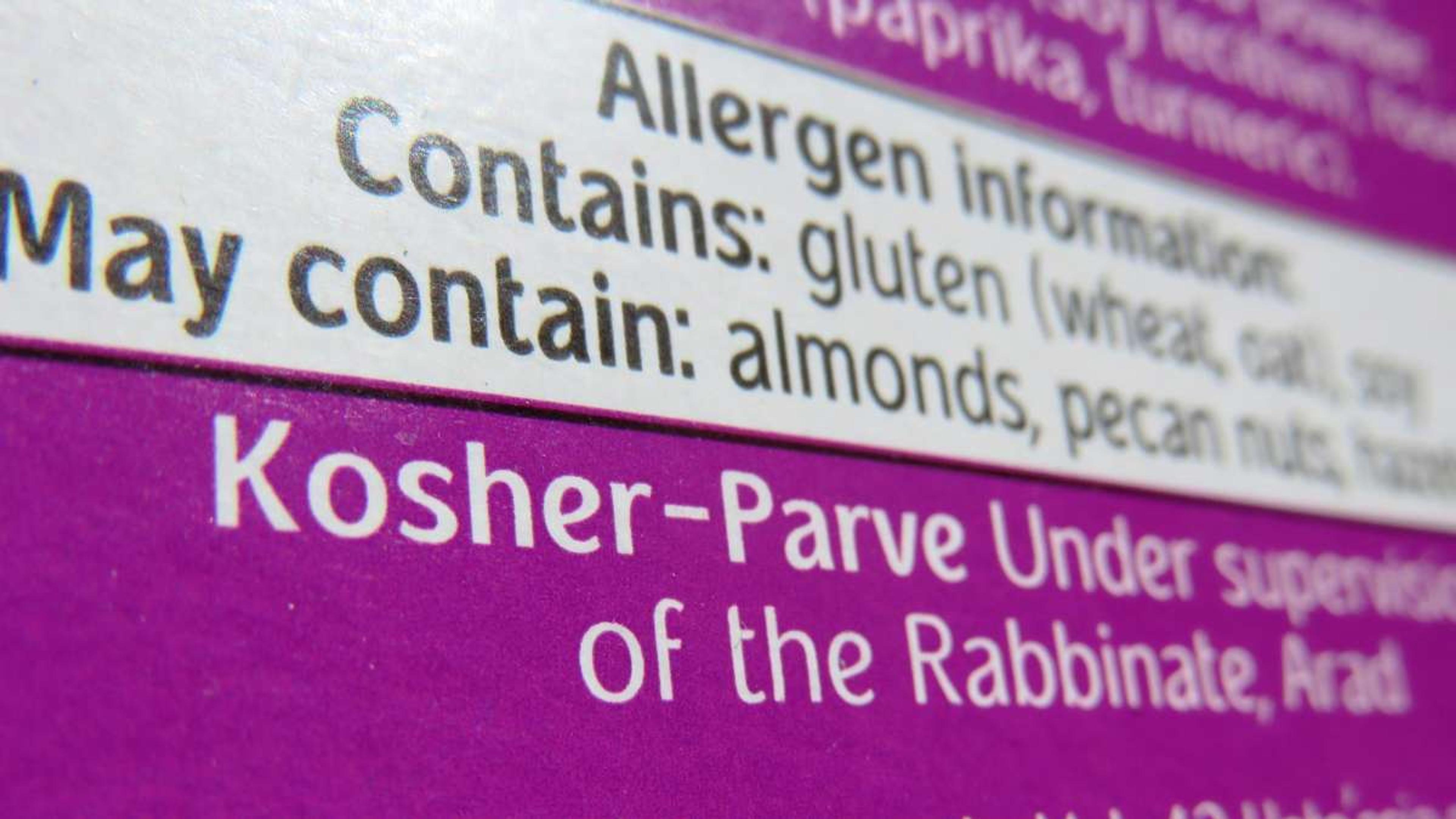Demystifying Veganism and Kosher: Is Vegan Kosher?

- Key Takeaways
- Overview of Vegan Diet and its Principles
- Is Vegan Kosher?
- Instances Where Vegan Doesn't Mean Kosher
- Benefits of a Vegan Diet for Kosher Observance
- Keeping Kosher While Following a Vegan Diet
- Conclusion
- FAQs
Are you a vegan who also wants to follow kosher dietary laws? If so, you may be wondering if the two can coexist. Well, here's a fact: While there are inherent overlaps between veganism and kosher principles, it's essential to understand the nuances in order to navigate this dual lifestyle successfully.
In this blog post, we'll delve into the ins and outs of whether being vegan is truly kosher and provide helpful tips on how to keep both practices in harmony. Curious? Let's dive right in!
Key Takeaways
- Veganism and kosher principles have inherent overlaps, but being vegan doesn't always mean being kosher. It's important to understand the nuances and potential challenges in combining these two lifestyles.
- A vegan diet aligns with many kosher laws such as not mixing meat and dairy, but specific requirements for cleaning produce, kitchenware, and certification by a rabbi or agency are necessary for full kosher observance.
- Certain ingredients like wine, grape juice, and balsamic vinegar can pose issues for vegan kosher observance. Consumers should carefully read labels and look for reliable certifications to ensure compliance with both vegan principles and kosher dietary laws.
Overview of Vegan Diet and its Principles
A vegan diet is all about eating foods from plants. It leaves out any food that comes from animals. This means no meat, dairy, or eggs make it to the plate. Vegans also say no to items made by animals like honey and gelatin.
The principles of veganism go beyond what's on the menu too. For vegans, they choose not to use animal products in other ways as well such as clothing or cosmetics. Plus, being vegan can improve health! Studies show this kind of diet helps people have better heart health and blood sugar levels.
It's a lifestyle choice for many geared towards respect for all living beings and improved wellness.
Is Vegan Kosher?
A vegan diet inherently aligns with many kosher principles, but there are certain instances where vegan doesn't mean kosher due to different levels of strictness. Keep reading to find out more.

Introduction to Kosher dietary laws
Kosher laws, or "kashrut," hold a major place in Judaism. These rules tell Jews what they can eat and how to prepare it well. They touch almost every part of mealtime. Foods that meet these rules are called "fit" or "proper." For many Jews, keeping kosher is not just about food.
While some believe these laws were given for health reasons, many see them as divine decrees meant to instill discipline, spiritual growth, and a sense of holiness in daily life. The act of keeping kosher is not just about adhering to a dietary regimen but is a profound expression of dedication to the Jewish faith and its teachings.
How a vegan diet inherently aligns with many kosher principles
A vegan diet fits with many kosher laws. First, all fresh fruits and veggies count as kosher food. Vegans eat these a lot! While generally permissible, they must be inspected for bugs, as consuming insects is not kosher.
Second, vegans don't mix dairy and meat because they eat no animal products at all, including milk products. This ties in with the kosher law that bans mixing of milk and meat.
Plus, the idea of not hurting animals links to Jewish vegan values. The Torah says we should avoid causing harm to living things when we can. Many people say this means a vegan lifestyle is more in line with what the Torah wants for us.
Veganism and its implications for Kosher observance
Vegan food does not have meat or dairy. This goes well with kosher laws. Kosher rules say no mixing of meat and dairy. So vegans already follow this rule without trying.
But, not all vegan dishes are kosher. Some foods need special care and kosher supervision to make them kosher. For example, vegetables should be free from bugs as they can make a dish non-kosher. Vegan meals cooked in kitchens used for non-kosher food may also not meet the standard.
Instances Where Vegan Doesn't Mean Kosher
Although a vegan diet may seem inherently kosher, there are instances where being vegan doesn't necessarily mean being kosher. Discover the strict standards for cleaning produce, specific kitchenware requirements, and potential issues with certain ingredients that can impact the kosher status of vegan foods.
Read on to learn more about these important distinctions.

Strict standards for cleaning kosher produce
Kosher dietary laws have strict standards for cleaning produce to prevent the consumption of insects. These standards are important in order to comply with Jewish law and maintain cleanliness according to the laws of kashrut.
The guidelines ensure that all fruits and vegetables are thoroughly inspected and cleaned to remove any insects or impurities. This attention to detail is necessary because consuming insects is considered non-kosher and against Jewish dietary laws.
By following these rigorous cleaning procedures, kosher consumers can be confident that their produce meets the requirements of kashrut and is free from any unwanted contaminants.
Requiring preparation by a Jew
To be considered kosher, certain foods need to be prepared by a Jew. This means that a Jewish person must play an active role in the preparation process. It could involve cooking or baking the food according to Jewish dietary laws.
Without this involvement, the food may not meet kosher requirements. These specific requirements highlight the importance of having Jewish participation in ensuring that certain foods are prepared correctly and meet kosher standards.
Need for Kosher certification
Kosher certification by a rabbi or kosher agency is necessary to ensure that a product or establishment meets the strict dietary laws of Judaism. This certification guarantees that the food is prepared according to Jewish dietary laws, including the separation of meat and dairy products.
Without this certification, it is advised not to consume food from a vegan restaurant, even if it appears to be following kosher laws. The certification process involves verifying that the product or establishment complies with these strict standards, ensuring that Jews can trust that their food is both vegan and kosher.
Specific kitchenware for Kosher food preparation
To adhere to kosher dietary laws, specific kitchen equipment must be used for food preparation. This includes utensils, equipment, countertops, and ovens. It is important that all of these items are kosher in order for a vegan restaurant to be considered kosher.
If the kitchenware has been previously used for non-kosher foods, it may not meet the standards required by Jewish dietary laws. Paying attention to the selection and use of specific kosher kitchenware is necessary in order to keep kosher while following a vegan diet.
Potential issues with certain ingredients
Certain ingredients like wine, grape juice, and balsamic vinegar can pose potential issues when it comes to vegan kosher observance. Here are some important considerations:
- Wine: Traditionally, wine is an important part of Jewish rituals and celebrations. However, not all wines are automatically considered kosher. Some wines may use animal-derived fining agents or may have been processed using non-kosher equipment. It's necessary to look for wines that have been certified as kosher by a reliable authority.
- Grape Juice: Similarly to wine, grape juice should also be checked for kosher certification. The production process and potential contact with non-kosher equipment must be taken into account.
- Balsamic Vinegar: Balsamic vinegar is made from grapes and does not contain any animal products. However, certain brands or varieties may add non-kosher ingredients during the aging or flavoring process. To ensure that balsamic vinegar is vegan kosher, it's important to choose brands that are certified as both vegan and kosher.
Benefits of a Vegan Diet for Kosher Observance
A vegan diet offers numerous benefits for those observing kosher dietary laws. From a seamless transition to cost-effectiveness and health advantages, discover why combining veganism with kosher principles can be advantageous.
Read on to explore the benefits of a vegan diet for kosher observance.
Easier transition
Transitioning to a plant-based diet while maintaining kosher can be easier for Jews compared to other dietary choices. By eliminating animal products, such as meat and dairy, from their meals, individuals can align with the principles of kashrut while promoting ethical treatment of animals and environmental sustainability.
This transition can provide health benefits, cost-effectiveness, and cultural connections for Jewish individuals who seek to incorporate veganism into their kosher observance.
Cost-effectiveness and simplicity
A vegan diet can actually make it easier and more affordable to keep kosher. While some people may find the cost of buying kosher food prohibitive, choosing a vegan lifestyle can provide proper nutrition at lower costs.
In fact, there are even certifications available that ensure products are both vegan and kosher. This means that not only are they free from animal exploitation, but they also comply with all the necessary kosher standards.
By following a vegan diet and opting for these certified products, keeping kosher becomes simpler and more cost-effective.
Health benefits
A vegan diet offers several health benefits and aligns with many kosher principles. Research shows that plant-based diets, like veganism, can lower cholesterol levels and improve blood glucose control.
By eliminating meat, dairy, and other animal products from their diet, individuals following a vegan lifestyle decrease their risk of developing cardiovascular disease and type 2 diabetes.
These health advantages make a vegan diet compatible with the values of kashrut, which promotes physical well-being and mindful food choices.
Keeping Kosher While Following a Vegan Diet
Determine if a product is both vegan and kosher by looking for reliable kosher symbols or certifications on packaging, as well as verifying that it does not contain any non-kosher ingredients.

How to determine if a product is both vegan and kosher
To determine if a product is both vegan and kosher, you can follow these steps:
- Look for reliable kosher certification: Check for a recognized kosher symbol on the packaging, such as the Orthodox Union (OU) symbol or other trusted kosher certifying agency logos.
- Read the ingredients list: Make sure there are no animal products listed, such as meat, dairy, eggs, fish, or honey. Also, watch out for byproducts like gelatin or whey protein.
- Check for any potential non-kosher additives: Certain ingredients may not be inherently non-vegan but could present issues for kosher observance. Examples include wine, grape juice, balsamic vinegar (which may contain red wine), or certain food colorings derived from insects.
- Consider the production process: Some vegan products may be processed on equipment that also processes non-kosher items. Look for statements on the packaging regarding shared equipment and potential cross-contamination with non-kosher foods.
- Consult with a kosher authority: When in doubt about a specific product's status, reach out to a knowledgeable rabbi or a certified kosher agency to get guidance on its suitability within your dietary needs.
Popular brands and labels that offer vegan kosher options
Many popular brands and labels now offer vegan kosher options. Some of these include:
- Beyond Meat: Their plant-based meat alternatives, such as burgers and sausages, are certified kosher.
- Tofurky: Known for their vegan deli slices and sausages, Tofurky products carry kosher certification.
- Daiya: This brand specializes in vegan cheeses that are also certified kosher.
- Field Roast: They produce a variety of vegan meats, including sausages and roasts, which are kosher certified.
- Earth Balance: Their range of vegan buttery spreads is available with kosher certification.
- So Delicious: This brand offers dairy-free ice creams, yogurts, and milk alternatives that are also kosher.
- Amy's Kitchen: Known for their frozen meals and soups, many of Amy's Kitchen products are both vegan and kosher certified.
Vegan kosher restaurants and establishments
Vegan kosher restaurants and establishments are places where you can enjoy both vegan food and follow kosher dietary laws. Here are some important points to know:
- Many vegan restaurants may not be certified as kosher, meaning they may not adhere to all the specific requirements of Jewish dietary laws.
- However, some vegan establishments do obtain kosher certification, ensuring that their food is prepared and served according to kosher standards.
- It's important to wait for a vegan restaurant or establishment to receive proper kosher certification before assuming that it is fully compliant with kosher laws.
- Kosher-certified retail food products for vegans are more commonly available than vegan kosher restaurants. These products have undergone the necessary checks and procedures to meet both vegan and kosher requirements.
Staying mindful of Kosher Laws
To ensure that your vegan meals at home remain kosher, here are some important guidelines to follow:
- Use separate pots, pans, dishes, and utensils for meat and dairy products. This helps prevent the mixing of milk and meat, which is prohibited by kosher laws.
- Keep your kitchen clean and free from any non-kosher food remnants. It's essential to maintain a dedicated cooking space for kosher meals.
- Check ingredient labels carefully to avoid using any non-kosher additives or animal-derived products in your vegan dishes. Look out for ingredients like gelatin or lard, as these are not considered kosher.
- If using produce that requires checking for insects (like leafy greens or dried fruits), make sure to thoroughly inspect them according to kosher standards before incorporating them into your meal.
- Consider obtaining kosher certification for any packaged or processed foods you use in your vegan cooking. This ensures that they meet the strict requirements of kosher dietary laws.
- Be mindful of the timing when preparing both meat and dairy dishes. Kosher laws prohibit consuming them together in the same meal, so plan accordingly.
- Don't forget about baking! Make sure any bread or baked goods you serve with your vegan meals are certified kosher or prepared in a designated kosher bakery.
Conclusion
In conclusion, while a vegan diet may align with many kosher principles, there are instances where vegan food may not be considered kosher. Strict standards for produce cleaning and the need for kosher certification can pose challenges.
However, with proper knowledge and awareness of kosher laws, it is possible to keep a vegan diet while observing kashrut. The intersection of veganism and kosher practices opens up new possibilities for those seeking to follow these dietary restrictions.
FAQs
1. Is vegan food considered kosher?
Yes, vegan food is generally considered kosher as long as it follows the dietary laws outlined in Jewish tradition, such as not mixing meat and dairy products.
2. Can I trust all vegan products to be kosher?
No, not all vegan products are automatically kosher. It's important to look for appropriate certification symbols indicating that a product meets the specific requirements of kashrut (Jewish dietary laws).
3. Are there any restrictions on what vegans can eat under kosher guidelines?
While many plant-based foods are naturally kosher, there are some restrictions within Jewish dietary laws that may impact certain ingredients or preparation methods used in vegan recipes.
4. Can a person following a strict kosher diet also choose to be vegan?
Yes, it is possible for someone who follows a strict kosher diet to also adopt a vegan lifestyle if they ensure their food choices align with both sets of principles and guidelines.

